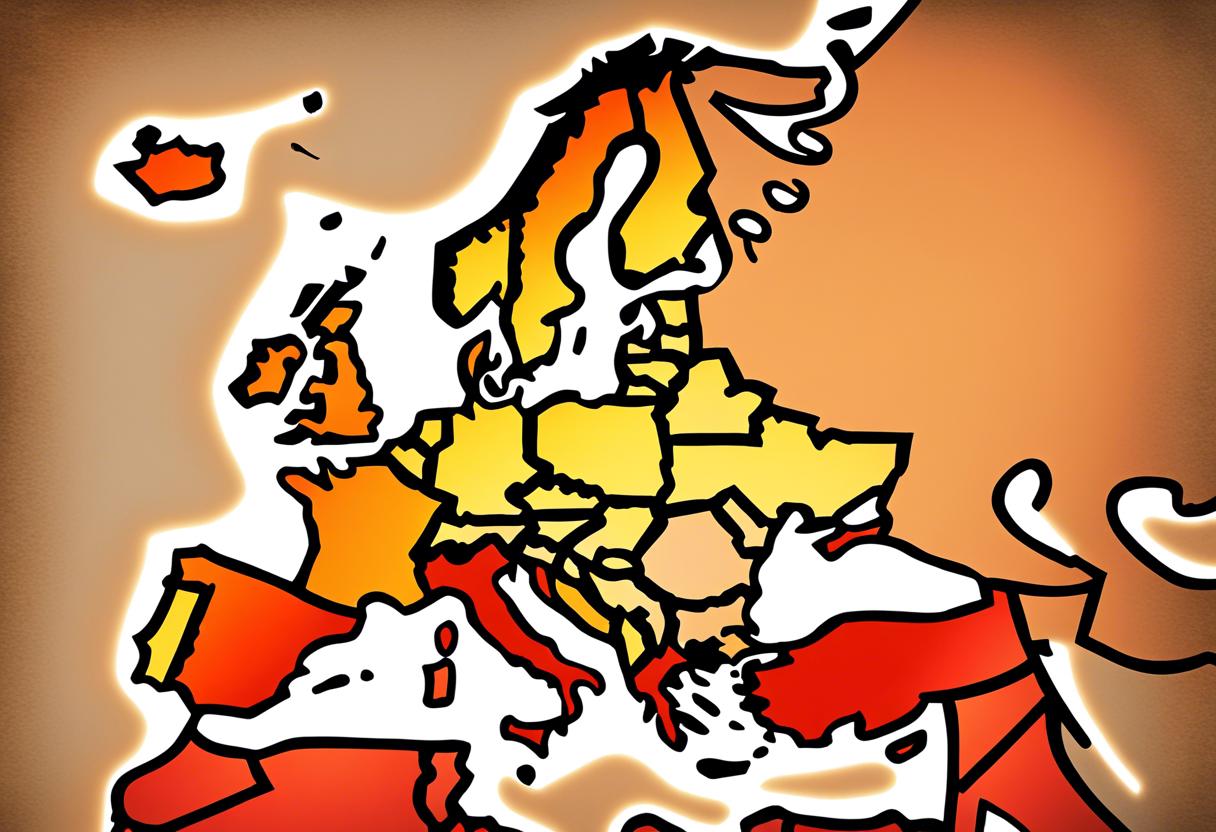Taoiseach Simon Harris has recently expressed a belief that several other European nations may join Ireland and Spain in acknowledging Palestine as a state. During his visit to Brussels, the newly elected Fine Gael leader made clear his perspective that urgent de-escalation of unrest in Gaza is essential.
In his conversation with Ursula von der Leyen, the president of the European Commission, the discussion covered an array of topics like the conflict in Ukraine, modifications in asylum laws and directives related to agriculture. Harris highlighted the urgent need for Israel to terminate its military activities in Gaza, prompted by attacks from Hamas insurgents on the 7th of October.
Harris conveyed the necessity for every possible method to be used to achieve this truce and expects that the perspective of Ireland will be respected by European organisations. He additionally urged for the release of Israeli hostages still in Hamas’s grip.
Harris further indicated that the Irish government aspires to persuade other EU nations to acknowledge Palestine’s statehood. He envisages a possible coalition of European countries recognising the state of Palestine, though he doesn’t predict unanimous agreement within the EU.
Harris was firm that Ireland is resolute in recognising Palestine and does not wish to wait for an EU-wide consensus. Despite a variety of positions within the EU on the conflict, the emergence of a definite viewpoint favouring a truce was noted by Harris.
Regarding migration policies, Harris confirmed that Ireland will be fully aligned with the new EU-wide asylum laws which have recently been endorsed by the European Parliament, as he backs a more robust approach on this issue.
Ireland’s asylum policy is set to receive a revamp, making it more rigorous with claims addressed more promptly and a quicker repatriation process for unsuccessful claimants. The Taoiseach believes this new pact will transform the nation’s migration policy in the coming years, as it will streamline decision-making and the repatriation process.
Taoiseach Mr Harris, on his maiden overseas visit post his designation, rendezvoused with Roberta Metsola, the European Parliament President from Malta. Following his Brussels meetings, Mr Harris is set for a visit to Warsaw, Poland, for an informal supper with various EU chief administrators on Thursday evening. Here, he is scheduled to meet with Charles Michel, the European Council president, Polish Prime Minister Donald Tusk, and the leaders from Spain, Greece, Finland, Estonia, and Luxembourg.
In the meantime, the Israeli foreign ministry has criticised Mr. Harris for not explicitly addressing the Israeli hostages held captive in Gaza in his inaugural Dáil address as Taoiseach. The ministry, expressing its outrage, also criticised Ireland’s plan, along with several other EU nations and Norway, to formally acknowledge a Palestinian State.
Following the Israeli foreign ministry’s criticism, it released a statement alleging that Mr Harris did not address the Israeli hostages taken by Hamas on October 7 during his opening Dáil address as Taoiseach. In response, Tánaiste Micheál Martin denounces allegations that U.S. military aircraft might be transporting arms via Shannon Airport to Israel.
During the Dáil proceedings, Mr Martin ensured that no arms were being transported to Gaza or Israel through Shannon Airport and emphasized that the rules were being rigorously enforced. He was responding to Bríd Smith, a TD from the People Before Profit party, who highlighted a surge in U.S. military flights via Shannon, as reported by Shannonwatch, since October.
In response to a query from the Labour leader, Ivana Bacik, about the assurance of no weaponry being transported through Irish airspace to Israel, the Tánaiste, Mr Martin insisted that no applications had been received during this or the previous year for such transportation. He also mentioned his discussions with the Spanish foreign minister about a proposal for Ireland to acknowledge the statehood of Palestine, and identified his intent to converse with Norway and Slovenia’s foreign ministers, as well as other EU nations with similar views.
While Ms Bacik recommended the Occupied Territories act to be brought into effect, saying there was a legal provision that would permit Ireland to do so, Mr Martin responded that this was a matter for the EU, and that implementing the law to halt trade and the purchase of goods made in Israel in those areas would be against the law according to their counsel.
Ms Albanese, UN special Rapporteur, had been asking Ireland to match their actions with their rhetoric in reference to the Occupied Territories, to which the Tánaiste replied that while he had conveyed certain measures taken by Ireland to Ms Albanese, she was unaware and hadn’t requested a meeting with them which was regrettable.
Mr Martin, who is the Foreign Affairs Minister emphasised the significance of diplomatic routes by stating that the evacuation of more than 70 Irish citizens and dependents from Gaza could have been hindered if the Government had taken heed of the expulsion of the Israeli ambassador at the beginning of the war per the proposal of Ms Smith’s party. He declared the idea that any changes to the triple lock would mean discarding neutrality to be a fallacy.

